Trump: Pence allowed 'insurrection' to block review of the election theft
This past week, former US President Donald Trump again criticized former Vice President Mike Pence for Pence's handling of the disputed 2020 presidential election. Trump said that Pence failed in his duty as the President of the Senate at the January 6, 2021 Joint Session of Congress to ensure the integrity of the election when there were “obvious signs of voter fraud or irregularities.”
Recently, Pence criticized Trump's earlier complaints about his handling of the January 6 Joint Session, which, as a part of the regular legal process of validating Presidential elections, was convened to certify the legitimacy of the Electoral College votes of the various states.
Trump accused Pence of having acted as “an automatic conveyor belt for the 'Old Crow' Mitch McConnell to get Biden elected President as quickly as possible.” He was referring to the fact that, when the proceedings were interrupted for more than 10 hours by the breach of the Capitol, the detailed challenges that many expected would be presented - of fraud, ballot stuffing and violations of Article 2, Section 1 of the Constitution in Georgia, Michigan, Nevada, Pennsylvania and Wisconsin - were given short shrift in deference to what a number of senior Congressional officials termed “the assault on American democracy” represented by what was already being called, both in Congress and on television, “the insurrection.”
Trump maintains that, rather than allow the proceedings to descend into an emotional morass which prejudiced the outcome, and dismissed the many valid issues raised about the election without a proper hearing, Pence should have provided an atmosphere for those many members of both houses who had announced their intention to bring the challenges to do so in a professional and secure environment, with confidence that the proceedings would be conducted in a fair and objective manner.
Pence answered Trump's criticism by saying that he “had no right to overturn the results of the election.”
Speaking to the conservative Federalist Society in early February, the former Vice President said some Republicans “believe that as the presiding officer over the joint session of Congress, I possessed unilateral authority to reject electoral college votes. And I heard this week, President Trump said I had the right to ‘overturn the election’. President Trump is wrong…I had no right to overturn the election.”
Although Trump had used the words “overturn the election” in a public statement, he was referring to the challenges to the vote counts that many expected would be presented in the half-dozen so-called “swing states” referenced earlier. These included a Constitutional challenge arising as a consequence of various procedural changes which had been made in the months leading up to the election and which allowed several million voters to use mail-in ballots for the first time.
The role of the joint session
The Joint Session – i.e., the convening of both houses of Congress in one session - is held on January 6 following presidential elections. The House and Senate jointly convene, and the Electoral College results of each state are presented in the alphabetical order of the names of the individual states for certification by the Vice President, who presides over the proceedings. As the votes counts are presented, the Vice President asks the assembled Congress if there are any objections to the certification of that state's vote. If there are no objections, the certification is presumptively granted.
If an objection is raised by a member of the House, however, and if it is joined by a member of the Senate, than the two houses retire to their respective chambers, where the challenge is presented in the form of a trial. If each house sustains the objection, the vote is denied certification, and is not counted in the totals.
There had been allegations raised in a number of the “swing states,” including Pennsylvania, Georgia, Wisconsin, Michigan, Arizona and Nevada, of various types of outright fraud. There was also a claim – a strong one that, for some reason, no court had touched the merits of - alleging that recent changes in election practice were done without enabling legislation by their state legislatures, and that therefore the votes that followed from these changes, including a huge and decisive number of newly-authorized mail-in ballots, were void, as being in violation of Article II, Section 1 of the US Constitution. That Section provides:
“Each State shall appoint, in such Manner as the Legislature thereof may direct, a Number of Electors...”
There were enough votes in enough “swing states” which fell into the latter category to hand the election to Donald Trump, if those challenges prevailed.
The challenges
The first challenge was raised, prior to the Capitol breach, in the third state to be offered for certification - namely, Arizona. This prompted the two houses to retire to their individual chambers to examine the evidence supporting the claims of irregularity that were to be raised.
It was when these sessions were convened that the Capitol's security was breached, and portions of the building were temporarily occupied. Each of the Senate and House sessions bore the heavy imprint of the protesters' intrusion, and much of the debate was focused not on the facts and law relevant to the claim, but instead on what was already being termed "The Insurgency".
Upon the return to the Joint Session, most of the remaining challenges were deferred in favor of a showing of unity against what Senate Democratic Leader Chuck Schumer “a day of infamy” newly added to a shortlist that included Pearl Harbor and 9/11, where “the temple to democracy was desecrated.”
Event details
At the opening of the session, Alabama and Alaska reported their votes. Each had favored Trump and Pence, with a total of 12 votes for the two against none for their Democratic rivals. When the certification of the vote for Arizona was called, Rep Paul Gosar (R-AZ) objected on behalf of himself and 60 fellow Congressional Republicans. These were joined by an objection from Senator Ted Cruz (R-TX), thereby forcing the matter into recess to consider the evidence, to wide applause from the Republicans of both houses, at 1:14 pm ET.
It was during this recess that the Capitol was breached. This provoked a media narrative that a coup d'etat was being attempted, and that it was connected to President Trump.
For nearly 10 hours, TV viewers were subjected to a bipartisan, kangaroo trial-in-absentia of the President. Talking heads from MSNBC, CNN and Fox mused that Trump had somehow masterminded what they called a coup attempt, with claims (which turned out to be false) that one or more Capitol police officers had been killed by the protesters.
Prior to convening the Senate to consider the objections raised about Arizona's electoral vote, the Republican Senate Majority Leader Mitch McConnell addressed the chamber about the incident:
"The United States Senate will not be intimidated. We will not be kept out of this chamber by thugs, mobs or threats. We will not bow to lawlessness or intimidation. We are back at our posts. We will discharge our duty under the Constitution and for our nation. And we're going to do it tonight...This failed insurrection only underscores how crucial the task before us is for our Republic."
The Democratic Minority Leader, Chuck Schumer, was even more melodramatic in his framing of the incident:
"President Franklin Roosevelt set aside December 7, 1941 as 'a day that will live in infamy.' Unfortunately, we can now add January 6, 2021 to that very short list of dates in American history that will live forever in infamy."
He was also unambiguous in his placement of blame for the incident:
"This will be a stain on our democracy, not so easily washed away. The final, terrible, indelible legacy of the 45th President of the United States - undoubtedly, our worst."
Schumer went on to say that those occupying the Capitol were “not protesters” but "domestic terrorists" who had "violated the temple of democracy" and “profaned this sacred chamber.”
Following the ten hours of rhetorical carpet-bombing dropped on the floors of both houses of Congress and across the media landscape, the Joint Session was reconvened at 11:39 pm ET, ten hours and twenty-five minutes after the objections were raised.
Not surprisingly, the vote on the Arizona objections failed in the House by a vote of 302 to 122. Democrats (220 to 0) unanimously rejected the challenge, while only 60% of Republicans (122 to 82) voted to support it. Clearly, had the incident not occurred, the vote would have still failed, but it would been closer to a party-line roll call, in the neighborhood of 229 to 195.
More importantly, the focus of the public televised hearing would have been on the evidence and law supporting the challenge, rather than a display of commentary on, and characterization of, the behavior of protesters, which was irrelevant to the substance of the claims being raised and examined.
Meanwhile, in the Senate, a mere 6 members supported the challenge, while a bipartisan super-majority of 93 rejected it.
Prior to the disruption, about 14 Senate Republicans had said they'd planned to vote in favor of the objections, meaning some lawmakers clearly changed their votes after the attack on the Capitol. In fact, at least four Senators who had previously announced their support changed their votes. It was evident that the tag-team effort by McConnell and Schumer had the desired effect on that proceeding.
“When I arrived in Washington this morning, I fully intended to object to the certification of electoral votes. However, the events that have transpired today have forced me to reconsider and I cannot now in good conscience object to the certification of these electors,” Sen. Kelly Loeffler said in a floor speech. Her reason for reconsidering had nothing to do with the validity of the challenges or the evidence supporting them. Rather, she said, “The violence, the lawlessness and siege of the halls of Congress are abhorrent and stand as a direct attack on the very institution my objection was intended to protect: the sanctity of the American democratic process.”
Others who reversed their positions included Sens. Steve Daines (R-MT) and James Lankford (R-OK), and Rep. Cathy McMorris Rodgers (R-WA).
Again, where the issues with the conduct of the election were to be the focus of the Senate's deliberations, instead the bulk of the rhetoric dealt with the “insurrection” and "the threat to our democracy,” etc., thereby denting the public – and the world - a view of an actual, thorough examination of the claims that the election was illegitimately conducted.
Return to the joint session
Upon reconvening after the breach of the Capitol, Pence called the next state's vote – Arkansas. There were no objections.
The list of states was then ticked off in alphabetical order, and there were no objections sustained until the votes of Pennsylvania were submitted for approval. There, Rep. Scott Perry (R-PA) and Senator Josh Hawley (R-MO) objected; they were joined by 80 members of the House. The Joint Session again recessed and the House and Senate each retired to their separate chambers to consider the objection, at 12:15 am, January 7.
The Senate spent less than 15 minutes debating the objections and voted 92 to 7 to reject them, thereby defeating the challenge before the House debate had been concluded, and again with little-to-no examination of the claims and the evidence supporting them.
During the House review, Rep. Brendan Boyle (D-PA) made comments that were both apocalyptic – and, nevertheless, typical - for the session. These included his opening statement that the vote on these objections was not about "picking the President...”
“Rather, tonight, in this House, we will decide whether American democracy survives." He said that if the objection succeeded, "it will be the end of our representative democracy."
The objection to the certification of the Pennsylvania electoral vote failed 282-138. Again, in the absence of the Capitol breach, this would likely have more reflected a much closer, party-line vote in the neighborhood of 229 to 195; again – and more importantly – there would have been a much more thorough vetting of the actual claims and evidence, and much less time spent on saintly rhetorical pontification about the “immediate threat” to “the temple of democracy,” etc.
Reconvened again
The Joint Session again reconvened, this time at 3:24 am. After speeding through the remaining list of state electors, Trump gained on Biden, reaching 224 to Biden's 268, until they got to Vermont. It was the three votes from Senator Bernie Sanders' state that put Biden over the 270-vote threshold needed to win.
The certifications of votes from Virginia (13 for Biden), Washington state (12 for Biden) and West Virginia (5 for Trump) all went off without objection. However, the vote from Wisconsin (10 for Biden) was challenged by 72 House members and one Senator, who then withdrew his objection.
His withdrawal meant that the objection failed.
Wyoming gave Trump its 3 electoral votes.
The final tally was 306 to 232 in favor of Biden.
Conclusion
Had the challenges in two or three of the six "swing states" been sustained, the outcome of the election would have been changed in favor of Trump.
Even failing this, a proper discharge of the duties of the Members of Congress would have enabled something that had thus far been denied since Election Day – a thorough public vetting of the claims made by the then-sitting President that the election had been stolen through fraud and specific unconstitutional means, with an opportunity for those so claiming to present their case and the evidence for all to see. This public vetting was denied by a long list of state and federal courts that, in the main, rested not upon the merits, but on technical issues such are ripeness, standing and jurisdiction. And this lack of transparency was viewed by perhaps half of the American public as evidence that there was something shady being concealed.
But rather than demonstratively holding an open and obviously objective trial of the facts and law regarding these claims, there was an atmosphere of fear and intimidation that prevailed on Capitol Hill and that was transmitted for more than 10 hours via C-SPAN and the commercial news networks.
As a consequence, the 2020 election lacks any sense of legitimacy in the eyes of perhaps half the electorate.
Pence's failure
It was clear from his opening statement in the Senate chamber during the review of the Arizona challenge that the Republican Senate Majority Leader had no intention of allowing any serious challenge to the certifications, thereby guaranteeing that Biden would be made president and that the final opportunity to vet the claims made by Trump and others would be lost. Pence did nothing to address this, or the comments made by dozens of Senators and House members that inflamed emotions both in chambers and among the general public.
Considering all this, as presiding official of the Joint Session, Pence failed in the performance of his Constitutional and statutory duties.
Trump's position was – and is - that Vice President Pence, as the President of the Senate during the Joint Session, had an obligation to ensure that each member of both houses felt free and safe to comment and vote according to their own convictions and to the duties of their office, without the cloud of a phony coup attempt hanging over them and the proceedings generally. That was the basis for his remarks disparaging Pence's performance as the presiding officer over the proceedings, which he termed a failure because he felt the former Vice President did not live up to the obligations of his office, including his oath to uphold the Constitution.
VIDEO | South Koreans demand end to joint US military drills and provocative policy against North Korea
VIDEO | A silent grief: Palestinian man struggles to recover remains of wife, children
Hind Rajab Foundation files complaint against Israeli genocidal propagandist in US
VIDEO | Trump fighting allies on Greenland
Iran FM: Selective respect for deals now haunting Europe
Arab rights group urges UK to sanction Netanyahu over 'incitement to genocide' in Gaza
‘Political, non-constructive’: Iran slams UNHRC special session on recent riots
Forced evacuations in South Gaza as Israeli military expands control over land


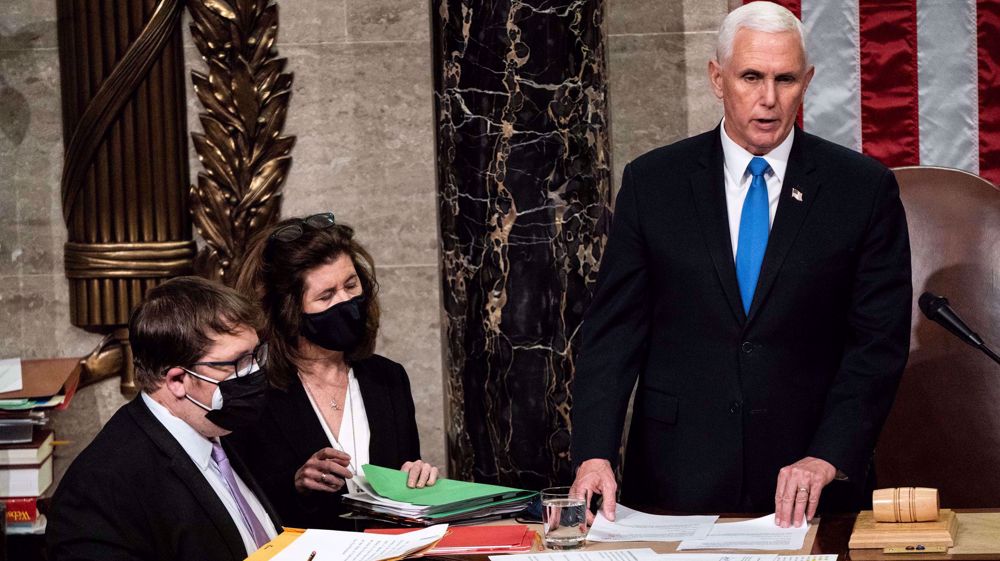
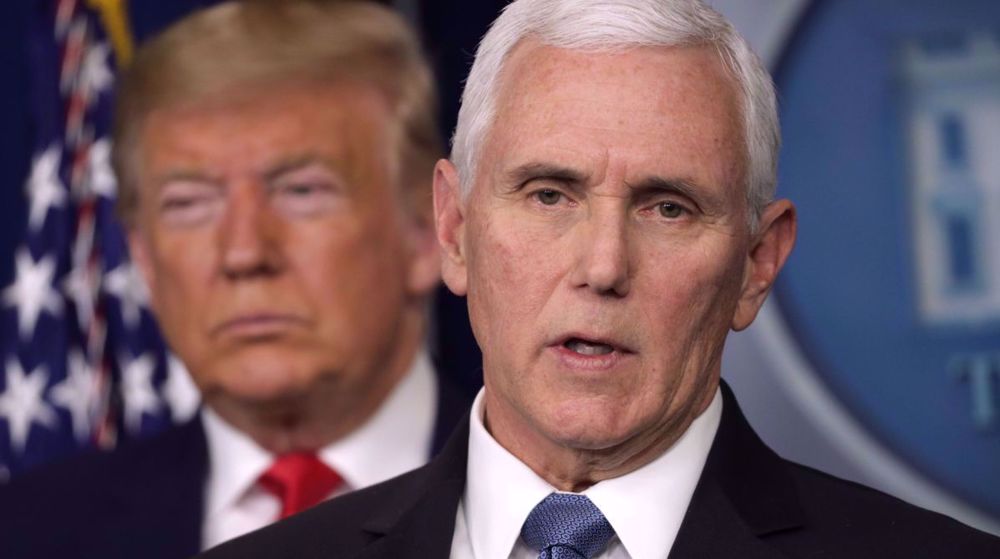
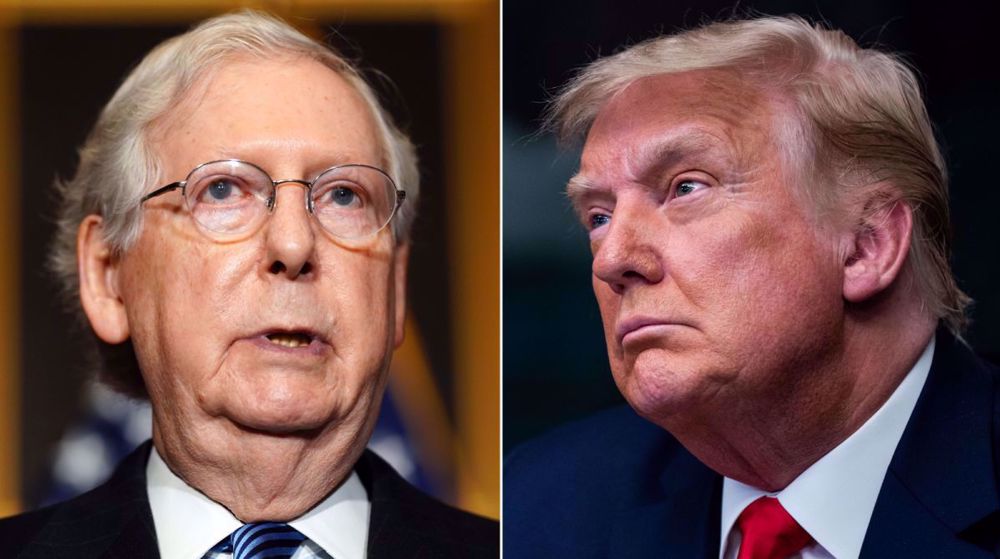
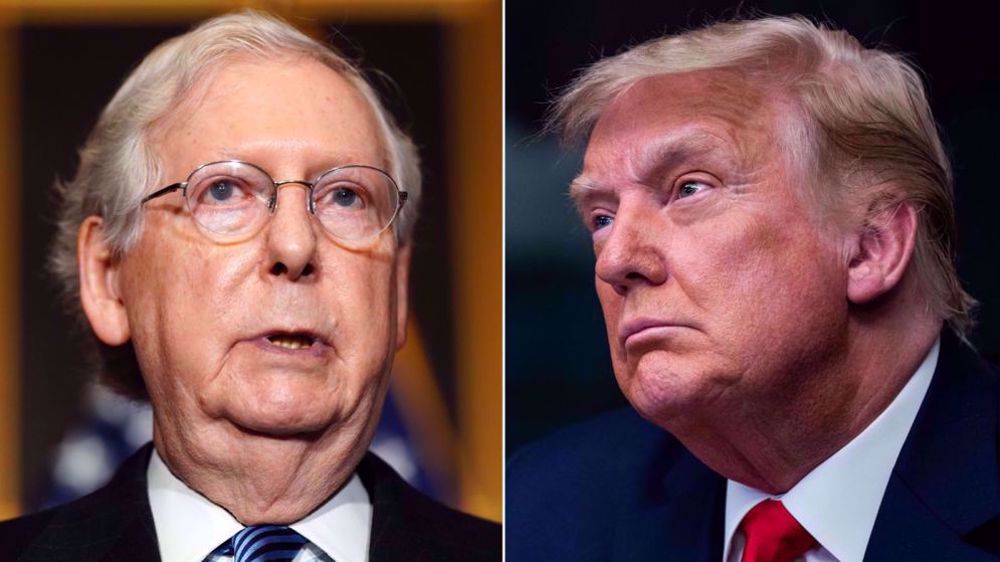
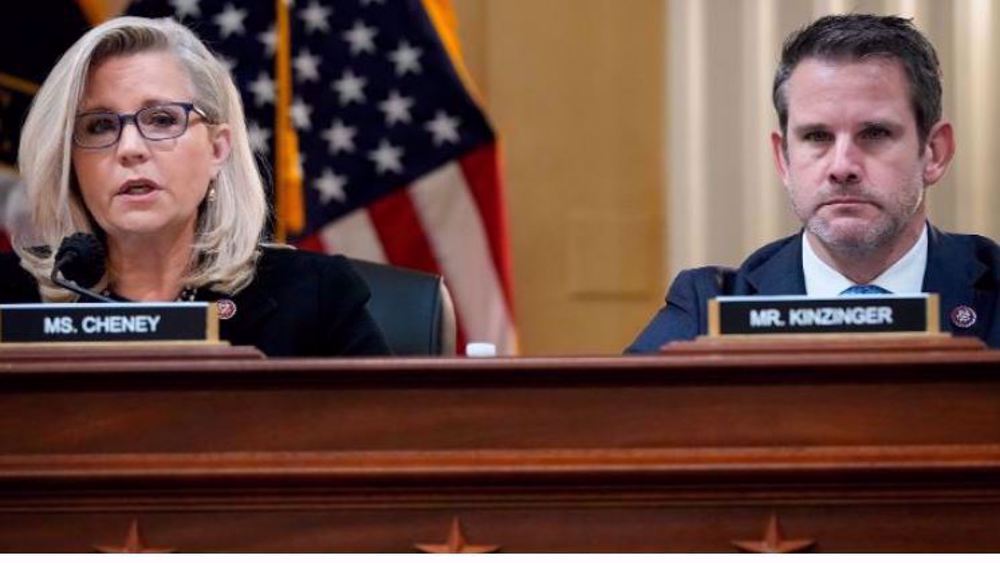
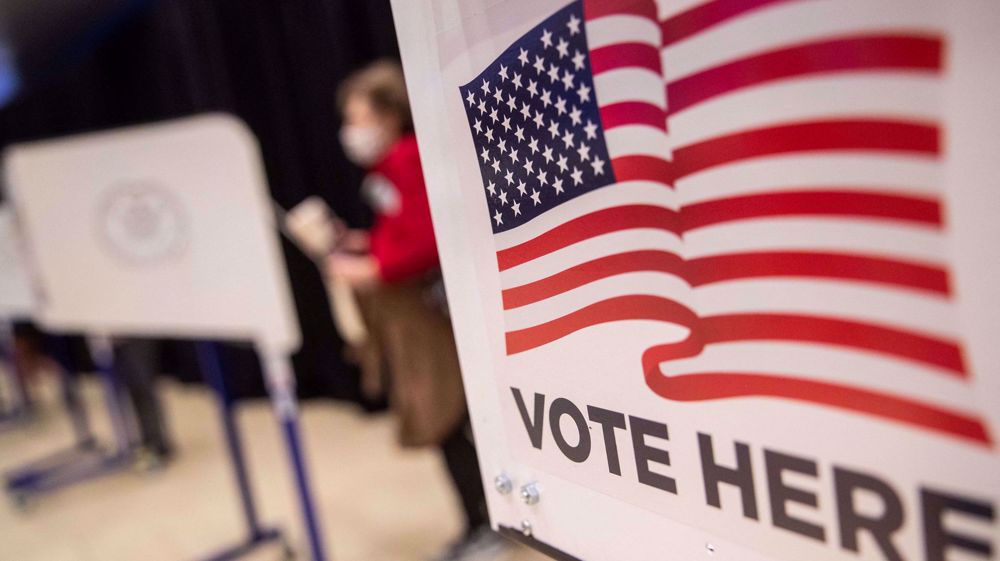

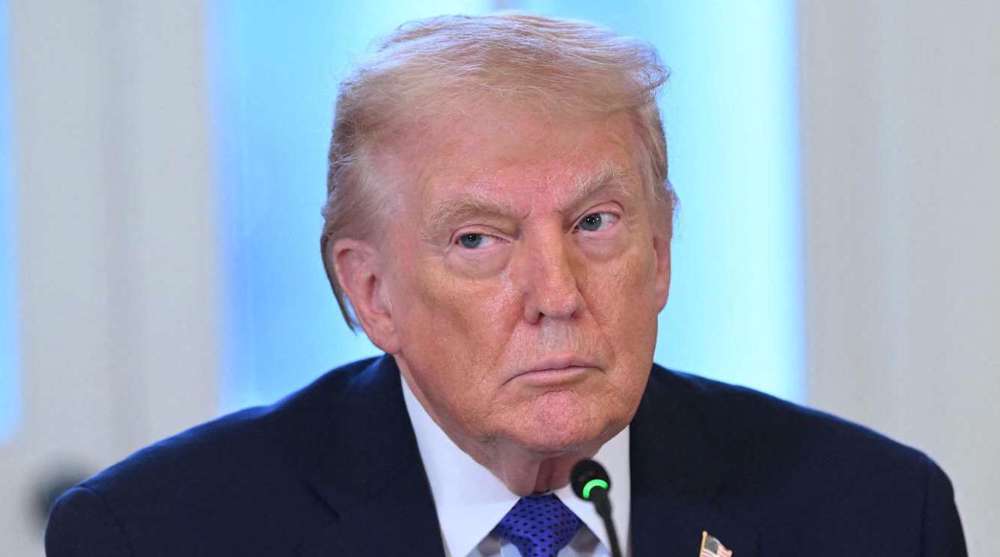
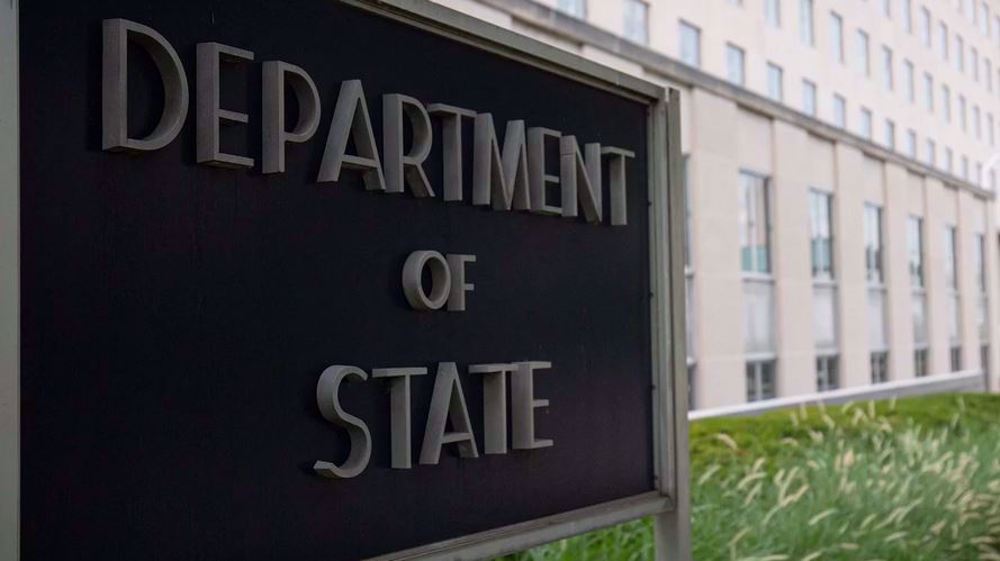




 This makes it easy to access the Press TV website
This makes it easy to access the Press TV website